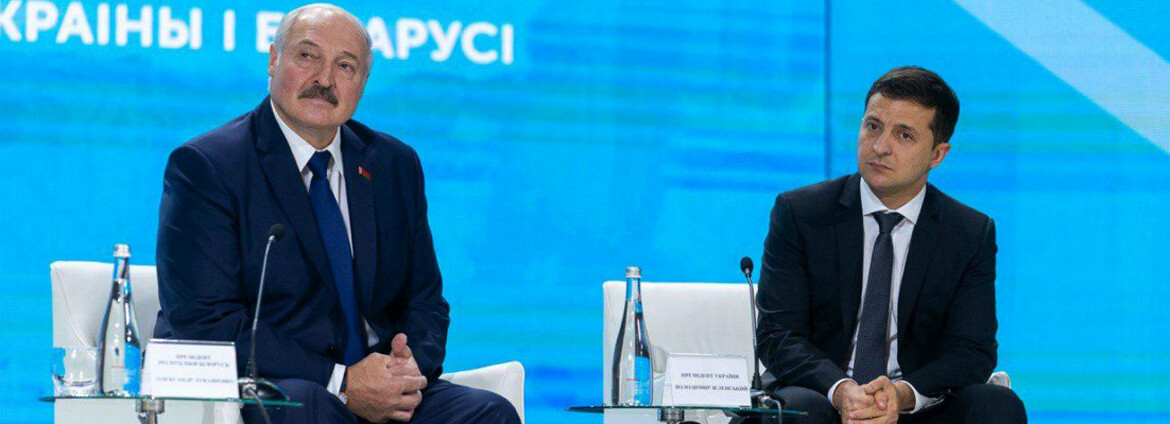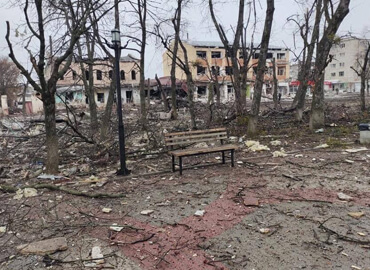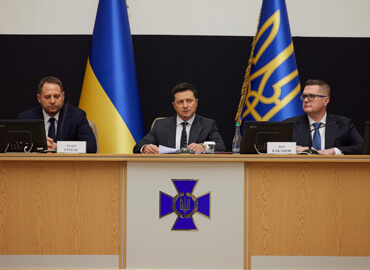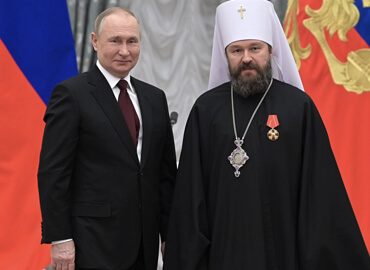The first quarter of 2021 could be indicative of further relations between Ukraine and Belarus. The climate of good neighborliness in bilateral relations has been seriously damaged, there is practically no dialogue at the political level, and harsh statements are issued periodically. Let us try to understand the latest trends in relations in Eastern Europe.
The 2020 presidential elections significantly changed the perception of Belarus and Aliaksandr Lukashenka in Ukraine. If until recently he could be called a hybrid ally with Ukrainian citizens naming him the most popular head of a foreign state, at the end of 2020 the situation changed in quality. The results of the vote announced and the mass protests that followed undermined the credibility of Lukashenka both from the standpoint of the government in Kyiv and that of ordinary citizens. For many, the protests in Belarus reminded them of the events of the Ukrainian Maidans (with all differences noted), so sympathy was clearly not on the side of the Belarusian authorities.
As is known, Ukraine does not recognize Aliaksandr Lukashenka as the legitimate president of Belarus but is in no hurry to impose sanctions against him personally or to speed up the process of imposing sanctions against Belarusian businesses. Ukraine’s joining the sanctions against Belarusian officials should not be overestimated because everyone understands how quickly almost any career can end in Belarus. Ukraine’s negative reaction to the verdict of journalists Katsiaryna Andreyeva (Bakhvalava) and Daria Chultsova is due to the mood in Ukraine and the desire to demonstrate solidarity with the EU at important moments.
It is obvious that Ukraine is interested not only in the supply of petroleum products but also in military-technical cooperation. At minimum, they are interested in the supply of dual-use goods, which include trucks and truck tractors. The potential sale of Belarusian strategic businesses to new Russian owners, which Putin and Lukashenka allegedly spoke about during their meeting in Sochi, is a serious challenge for Ukraine.
Even against the background of cooling relations with the government in Minsk, I would not dare to call the support of the Belarusian opposition by the Ukrainian authorities unequivocal. This is perhaps because there were no clear signals from Lukashenka’s opponents regarding an interest in rapprochement with Kyiv. Although Sviatlana Tsikhanouskaya is ready to call Crimea Ukrainian in Kyiv, they are in no hurry to invite her there. The leader of the Belarusian opposition took part in a virtual meeting of foreign ministers of the Lublin Triangle in January. At the same time, Ukraine remains (along with Russia) among the states to which Tsikhanouskaya has not yet paid a visit and has not negotiated with the country’s leadership. Her colleague Pavel Latushka took part in a discussion of the situation in the border states initiated by the security councils of Poland and Ukraine, but nothing more.
But in Kyiv, an investigation was opened into Ihar Makar, who published in January 2021 the «Zaitsev tapes» – recordings of conversations in April 2012 about the possible termination of Lukashenka’s opponents. The conversations allegedly took place in his office between the then head of the KGB of Belarus Vadzim Zaitsau and his subordinates. In Ukraine, Makar was interrogated by the National Police in the case of the murder of Pavel Sharamet, although the circumstances of the «Zaitsev tapes» – the office of a high-ranking official who was supposed to be protected from wiretapping and the participation of special services – is much more reminiscent of the «Melnichenko tapes.» Recordings of conversations in the office of then President of Ukraine Leonid Kuchma, let me remind you, provoked a large-scale political crisis in Ukraine in 2000. But such circumstances are not surprising: the «Sheremet case» has become a noticeable problem for the Ukrainian authorities, and they are looking for new possibilities for the development of the story.
If we continue the topic of the special services, then the recent statement by the current head of the KGB of Belarus Ivan Tertel on the supply of weapons from Ukraine can, perhaps, only rouse a smile. Belarusian security officials in various positions after 2014 made similar statements more than once, but they did not uncover objective confirmation. And they would not be able to find it, since Ukraine, until recently at least, did not deal closely with Belarus. The detaining of a Belarusian spy in the Volyn region was promptly balanced by a report in the Belarusian media about a Ukrainian agent within the Belarusian Ministry of Internal Affairs who managed to avoid detention. This is, by and large, a faint echo of the scandalous «Pavel Grib case» and the protracted spy scandal around Yuri Politika and Pavel Sharoiko.
It is possible also to touch upon the changes in the tone of the statements of the Belarusian leadership. If at the end of 2020, Aliaksandr Lukashenka periodically fired stinging darts at Ukraine and Vladimir Zelensky personally, then at the beginning of this year his fuse fizzled somewhat. Perhaps, both the lack of will of the government in Kyiv to get involved in a squabble and remaining economic interests (it is important for Belarus to maintain a positive trade balance with Ukraine today, albeit against the background of a noticeable decrease in volume) had an effect. It is significant that on the sidelines of the All-Belarusian People’s Assembly, Foreign Minister Uladzimir Makei, and not Lukashenka, declared friendship with Ukraine.
But it is not just the statements from officials. Television host Grigory Azarenok, who staged a «five-minute hate» against Ukraine on STV in March, would not have do so without a signal from a high level. The issue is not just that Russian propagandists took over the Belarusian airwaves in August and in many respects shape the information policy of Russian television. The point here is different: this information attack was carried out after the release of the film «Lukashenka – Gold Mine,» which deals with the luxurious lifestyle of the long-term leader of Belarus. The government in Minsk, willingly or unwillingly, uses the experience of Viktor Orban. The Hungarian leadership has repeatedly tried to recoup losses in Ukraine after criticism from the EU. Now this algorithm is being used by Lukashenka’s team, prioritizing tactical success over strategic reasoning. Ukraine could respond to this asymmetrically, for example, by launching the Belarusian Public Broadcasting Service, which is possible both technically and in terms of personnel.
It is not surprising that in Ukraine’s Military Security Strategy, Russia’s desire to keep Belarus in the sphere of its political influence is defined as a threat. The prevailing opinion earlier in Ukraine on the possibility of a Russian invasion from Belarus increased in inverse proportion to the decrease in mutual contact. One can say a lot about the migration of Belarusian IT workers to Ukraine, but it is highly doubtful that they received significant support from the Ukrainian state. Belarusian students have long made their way to universities in Poland and Lithuania and a reorientation towards Ukraine is unlikely to take place soon.
Although the atmosphere of bilateral relations between Belarus and Ukraine has deteriorated, it is unlikely they will fall back completely to a Russian-Ukrainian format. There are no objective reasons for this. The pragmatic nature of relations could make it possible to maintain trade turnover, ensure ties at the humanitarian level, and avoid the transformation of the Belarusian-Ukrainian border into a zone of increased tension. But for this, the government in Minsk should abandon information attacks and Kyiv should demonstrate its ability to conduct dialogue under current conditions.
Материал доступен на русском языке: Украина – Беларусь: квартал без шуток











